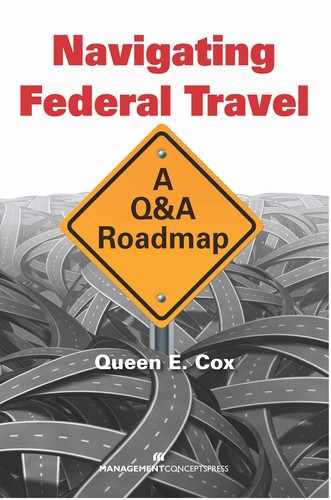PART
III
The Civilian Board of Contract Appeals
The Civilian Board of Contract Appeals (CBCA) holds the position that travelers are required to know the rules of government travel regardless of their grade or position. This part provides basic information about the CBCA and its legal interpretation of the FTR. Key CBCA decisions provide guidance on specific issues and situations a traveler is likely to encounter.
1 Why was the Civilian Board of Contract Appeals established?
The Civilian Board of Contract Appeals was established by section 847 of the National Defense Authorization Act for Fiscal Year 2006 to hear and decide contract disputes between government contractors and executive agencies under the provisions of the Contract Disputes Act of 1978, 41 U.S.C. 601–613, and regulations and rules issued under that statute.
2 What happened to the General Services Board of Contract Appeals?
On January 6, 2007, the General Services Board of Contract Appeals (GSBCA) ceased to exist, and cases and personnel were transferred to the newly established Civilian Board of Contact Appeals.
3 What types of cases are heard by the CBCA?
The CBCA hears claims by federal employees under 31 U.S.C. 3702 for reimbursement of expenses incurred while on official temporary duty travel or in connection with relocation to a new duty station. In addition, the CBCA hears claims by carriers or freight forwarders under 31 U.S.C. 3726(i)(i) involving actions of the General Services Administration regarding payment for transportation services. CBCA decisions are available at www.cbca.gov.
4 Can the CBCA review travel reimbursement disputes regarding travel within an official duty station?
Yes. In GSBCA 16083-TRAV, In the Matter of Carl A. Willecke (June 11, 2003), the board was presented with an interesting threshold argument by the Army Corps of Engineers. The Corps questioned whether the board’s rules of procedure for travel and relocation expenses cases authorized it to review the case. Specifically, the Corps noted that according to the board’s rules, it has express jurisdiction over only two types of claims: those for reimbursement of expenses incurred while on official temporary duty travel and those for reimbursement of expenses incurred in connection with relocation to a new duty station.
Since the rules do not expressly grant the board jurisdiction to address claims for local travel, the Corps reasoned that the board lacked the authority to address the issue raised by Willecke in his appeal.
The GSBCA rejected this argument. It found that the Corps had read its rules out of context. The board reminded the Corps that Congress has “vested in the Administrator of General Services the authority to settle claims involving expenses incurred by federal civilian employees for official travel and transportation, and for relocation expenses incident to transfers of official duty station” (31 U.S.C. 3702(a)(3)(2000)).
The FTR, which implements the statutes governing federal civilian employees’ travel and relocation, addresses all official travel, including local travel (41 CFR 300-1.1, -1.2, -70.102(h)). Moreover, the JTR, which implements and supplements the FTR for application to Defense Department employees, contains a specific part relating to local travel (JTR C2400-C2404).
Given this statutory and regulatory authority, the GSBCA determined that it clearly has the authority to settle claims for expenses of local travel as well as all other official travel undertaken by federal civilian employees.
5 Who, and what authority, allow an advance decision from the CBCA?
Agency heads and certifying officials have authority to request an advance decision from the CBCA under 31 U.S.C. 3529.
6 What is the Comptroller General’s authority compared to the CBCA?
The Comptroller General (CG) has authority under 31 U.S.C. 3529 to issue decisions to disbursing or certifying officers and heads of agencies on matters involving the use of appropriated fund that do not specifically involve settling a claim or other transferred functions as outlined in Public Law 104-316. The CG also has authority under 31 U.S.C. 3527 and 3528 to grant relief to disbursing and certifying officers.
CG decisions are available at www.gao.gov/legal.
